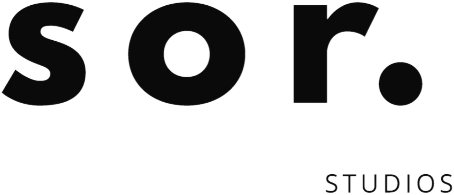TWO.
Rest and Recovery: The Key to Peak Performance
The athletes that attend sor. Studio as well as many others spend hours every week training, practising, and competing to become the best in their sport. While this dedication and commitment are necessary to achieve their goals, many athletes overlook the importance of rest and recovery in achieving optimal performance. In this article, we'll explore why we’ve found that rest and recovery are critical for our athletes and provide techniques that they can use to improve their athletic performance.
Why Rest and Recovery are Important for Athletes
Rest and recovery are essential practices for athletes because they help the body repair and rebuild itself after strenuous activity. During exercise, muscles break down, and micro-tears occur, causing inflammation to the muscle, which is often felt as an immediate or delayed onset of muscle soreness. Without proper rest and recovery, these micro-tears can accumulate and lead to overtraining syndrome, which can result in decreased performance, fatigue, and injury.
Rest and recovery are also crucial elements for maintaining mental health. Athletes often face pressure from coaches, teammates, and themselves to perform at their best. This stress can lead to anxiety, depression, and burnout. Taking time to rest and recover can help athletes reduce stress and improve mental health, which can positively impact their athletic performance, under the collaborative guidance of their health and coaching teams.
How to Incorporate Rest and Recovery into Training
There are several ways athletes can incorporate rest and recovery into their training regimen and at sor, we recommend:
Sleep: Sleep is one of the most crucial components of rest and recovery. Disrupted sleep and/or inconsistent sleeping patterns can lead to overall inhibited performance and wellbeing. During sleep, the body works through recovery and repair, with hormone regulation being utilised to promote muscle growth and repair. We advise our athletes to aim for at least 8-10 hours of sleep per night to ensure they are adequately rested for prime performance. This includes creating evening routines that can set them up for success with consistent sleeping patterns.
Active Recovery: Active recovery is a low-intensity activity that helps to increase blood flow and promote healing. A favoured form of recovery at our studio; some examples of active recovery include walking, massage and stretching, sauna (hot or cold therapy) and reformer pilates.
Nutrition: Proper nutrition is essential for rest and recovery. Athletes should aim to consume a balanced diet that includes balanced macronutrient intake; protein, carbohydrates, and healthy fats to promote muscle recovery and repair, alongside thoughtful micronutrients intake to ensure essential Vitamin and Mineral needs are met. Mindful attention to nutrition and these rituals translate across to performance in; training, their ability to achieve consistent sleeping patterns, optimal recovery and fuel for the high demand of competitive sports and overall well-being.
Rest Days: Rest days are essential for allowing the body to recover from intense training regimens. We encourage our athletes to take at least one to two mindful rest days per week to allow the body and mind to rest and recover to ensure optimal output is achieved in training and game sessions.
At sor., we are working to educate and guide our athletes to incorporate rest and recovery techniques into their routine and apply the same attention to detail as they would their strength and sports specific sessions. This will encourage reduced risk of injury, improve their physical and mental health, and enhance their athletic performance. While it may be tempting to push through fatigue and soreness, taking the time to rest and recover can ultimately lead to better performance and long-term success.
References:
Shrier, I. (2002). "Stretching before exercise does not reduce the risk of local muscle injury: a critical review of the clinical and basic science literature". Clinical Journal of Sport Medicine.
Hawley, J. A., & Burke, L. M. (2018). "Peak Performance: Training and Nutritional Strategies for Sport". Human Kinetics.
Dattilo, M., Antunes, H. K., Medeiros, A., Mônico-Neto, M., Souza, H. S., Lee, K. S., ... & Tufik, S. (2011). "Sleep and muscle recovery: endocrinological and molecular basis for a new and promising hypothesis". Medical hypotheses.
Halson, S. L. (2014). "Monitoring training load to understand fatigue in athletes". Sports medicine.
Kellmann, M. (2010). "Preventing overtraining in athletes
